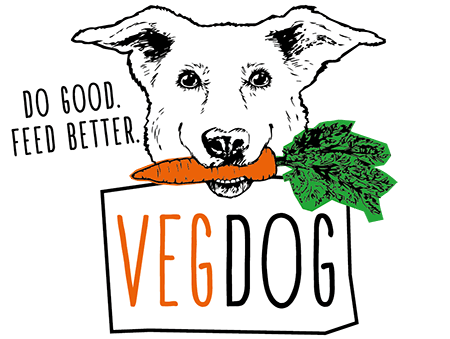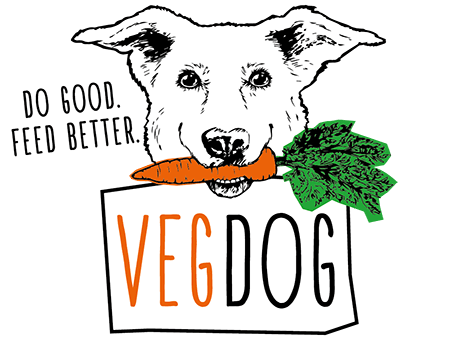
Which foods can cause allergies and intolerances?
More and more dogs are suffering from food allergies and intolerances. It often takes some time before dog owners can recognize the symptoms and act accordingly.
 Author: Carla Steffen
Author: Carla Steffen
 Proofreader: Veronika Hajek
Proofreader: Veronika Hajek
Updated: 01.10.2024
Published: 05.06.2024
More and more dogs are suffering from food allergies and intolerances. It often takes a certain amount of time before dog owners can recognize the symptoms and act accordingly. Below you will find out which foods often trigger allergies and intolerances in dogs. We will also tell you how you can recognize and treat the symptoms.
Food allergy vs. food intolerance
If your furry friend doesn't tolerate their food, it could be due to an allergy or intolerance. These two terms are often used synonymously, but they differ in certain respects.
In the case of food allergies, the repeated ingestion of an otherwise harmless food ingredient causes the immune system to overreact. The immune system fights the allergenic substances, resulting in numerous defensive reactions. In the case of food intolerances or intolerances, however, the dog's own immune system is not involved. In this case, the four-legged friend cannot ingest, process or break down certain food ingredients. Unlike with an allergy, small amounts of the intoleranced food ingredient are often tolerated. All in all, food allergies occur less frequently in dogs than intolerances.
Symptoms: How does a food allergy manifest itself in dogs?
The signs of a food allergy or intolerance can be varied. The most common symptoms include recurring itching and skin inflammation. The ears and paws are often affected, as are the snout and the stomach and groin area. These skin irritations can also lead to excessive nibbling and licking of the affected areas. Digestive problems such as diarrhea and vomiting are much rarer.
What to do if you suspect an allergy?
If you suspect a food allergy or intolerance, you should first visit a veterinarian and have the symptoms checked. In most cases, you will then be recommended an exclusion diet. This can be used to find out which food or foods trigger allergies or are not tolerated by your four-legged friend. The exclusion diet therefore involves a change in food. It is good to know which foods are the dog's main allergens.
Beef, chicken, lamb & co. - The main allergens of dogs
In a study, various allergens were tested in dogs to find out which ones trigger the most reactions and are therefore the main allergens. The most common food allergies were triggered by animal proteins. The most likely food allergens included the following:
| allergens | Tested dogs that showed a reaction to the allergen |
|---|---|
beef | 34% |
dairy products | 17% |
Chicken | 15% |
lamb | 14.5% |
Wheat | 13% |
soy | 6% |
corn | 4% |
egg | 4% |
Pig | 2% |
Fish | 2% |
rice | 2% |
What other meat can I feed my allergy-suffering dog?
Since animal protein is one of the main allergens in dogs, it is possible that your four-legged friend is already unable to eat many types of meat due to the allergy. In such cases, it is advisable to only use one source of protein. In addition to other types of poultry, goat, deer, horse and rabbit, there are also many exotic varieties such as buffalo, kangaroo and ostrich. An elimination diet can be used to find out which protein source your four-legged friend can tolerate. However, if you want to completely exclude animal proteins due to the food allergy, then the vegan dog food from VEGDOG is the right thing for you and your furry friend.
VEGDOG - The perfect dog food for allergies
We at VEGDOG have worked with veterinarians to develop a vegan dog food that excludes the main allergens in dogs. This makes it particularly suitable for four-legged friends with food allergies. Our hypoallergenic dog food contains all the essential nutrients your pet needs and therefore covers 100% of its needs. When making our allergy food for dogs, we only use high-quality ingredients and do not use any artificial attractants or colorings. In addition, our VEGDOG dog food is also gluten-free.
All in all, the perfect dog food for allergy sufferers! The best thing about it: We not only offer well-tolerated wet food and dry food , but also have numerous treats in store so that your furry friend can be pampered with culinary delights.
Custom Heading
Which foods are dogs allergic to?
When it comes to meat, beef (34%), chicken (15%) and lamb (14.5%) often trigger intolerance reactions. But dairy products (17%) and wheat (13%) are also among the main allergens for dogs. However, it is very individual which foods a dog can tolerate and which it cannot.
How do I find out what my dog is allergic to?
To find out what your four-legged friend is allergic to, an elimination diet is required. This involves removing potentially allergenic foods from the diet and replacing them with new, non-allergenic foods. This allows you to determine step by step which specific ingredients are causing the allergic reaction.
What can dogs with food allergies eat?Accordion Item
It usually depends on which foods your dog is allergic to. Since many allergies are caused by animal proteins, a vegan dog food can be the solution, such as the hypoallergenic food from VEGDOG.








